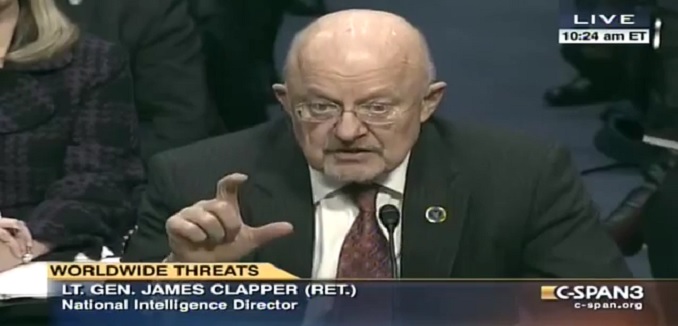Syria retains the vast majority of its chemical arsenal, can likely weaponize biological agents, and has restored the pace of its missile production to pre-war levels, according to a stream of analysis and reporting published on Tuesday and Wednesday. A written statement by James Clapper, the Director of National Intelligence, disclosed that U.S. intelligence analysts “judge that some elements of Syria’s biological warfare programme might have advanced beyond the research and development stage and might be capable of limited agent production.” Reporting on Clapper’s disclosure, The Telegraph noted that Syria’s program is sufficiently advanced that Syrian scientists may be able to create biological weapons even out of existing viruses, including out of strains of small pox.
“We judge that some elements of Syria’s biological warfare programme might have advanced beyond the research and development stage and might be capable of limited agent production, based on the duration of its longstanding programme,” said Mr Clapper…What is more, Mr Clapper warned, the regime could use its massive arsenal of artillery to deploy the weapons: “To the best of our knowledge, Syria has not successfully weaponised biological agents in an effective delivery system, but it possesses conventional weapon systems that could be modified for biological-agent delivery,” he said.
Meanwhile the Times of Israel conveyed assessments from Jane’s Defence Weekly describing Syria’s success in reconstituting its missile and rocket program, after Iran, North Korea, and Belarus provided assistance in circumventing international restrictions. The Jane’s report indicates that the Bashar al-Assad regime has boosted production to address both its own and Hezbollah’s need for projectiles. Regarding chemical weapons, the Organisation for the Prohibition of Chemical Weapons revealed yesterday that less than five percent of Assad’s chemical arsenal has been removed from Syria.
Syria has declared around 700 tonnes of most-dangerous chemicals, 500 tonnes of less-dangerous precursor chemicals and around 122 tonnes of isopropanol in its arsenal. Almost all the chemicals and precursors, except for isopropanol which is to be destroyed within the war-torn country, are supposed to be removed by February 5.”It’s almost certain that deadline will not be met,” a source close to the matter told AFP.
[Photo: Washington Free Beacon / YouTube]




